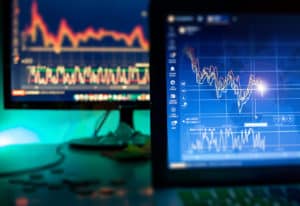 It’s been topsy-turvy year for the buy-side, primarily due to the ongoing headwinds the industry is contending with and the deeply unstable, and often chaotic, influence of geopolitical events, such as the US/China trade war and Brexit.
It’s been topsy-turvy year for the buy-side, primarily due to the ongoing headwinds the industry is contending with and the deeply unstable, and often chaotic, influence of geopolitical events, such as the US/China trade war and Brexit.
MiFID II continues to make its presence felt across the global buy-side community, perhaps most surprisingly in the US, where asset managers are increasingly embracing the changes around the unbundling of research and execution fees, while dark pool trading volumes surged in the second half of the year. However, according to some on the buy-side, European liquidity has now become harder to source as a direct result of the new regulatory regime.
One of the hottest topics of this year for the buy-side was the growth of outsourced trading. The trend was foreshadowed by consultancy Opimas early in 2019, with a report that increasing cost pressures could see 20% of buy-side firms adopt an outsourced desk by 2020 and there have been a number of offerings launched to market over the 12 months, including those from Northern Trust Virtu Financial, the latter of which began onboarding clients in October.
At the start of November, The TRADE broke the news that London-based hedge fund Ardevora Asset Management will shut its internal desk in April next year after deciding to outsource its front-office activities in a move to reduce market impact costs. However, there has already been pushback against the trend from some quarters of the buy-side, evidenced by a published contribution from an anonymous head trader on the subject that caused plenty of discussion throughout the industry.
Other hot topics for the year included the rise of portfolio trading in the fixed income markets and a push for the shortening of exchange operating hours in Europe, with the buy-side putting pressure on trading venues to alter market open times. The move is part of a wider movement among the buy-side to focus on cultural change, driven primarily by the diversity debate, which continues to provide plenty of buy-side fodder during various conference panel discussions.
For The TRADE’s buy-side cover profiles this year we spoke to Carl James, global head of fixed income trading at Pictet Asset Management about embracing change and where the fixed income world is heading, Cathy Gibson, head of dealing at Royal London Asset Management and winner of this year’s buy-side trader of the year (long only) award, about building a desk on the foundation of diversity in the face of increasing market complexity and evolving trading conditions, and Matt McLoughlin, head of trading at Liontrust Asset Management, about the importance of ‘softer’ trading skills and how change creates opportunities for those ready to take advantage. The TRADE’s Winter 2019 edition will feature a profile of David Miller, head trader for EMEA equities at Invesco, the most recipient of The TRADE’s buy-side lifetime achievement award.
As is usually the case, there were a host of people moves throughout the buy-side this year. A number of chief executives announced they would be either stepping down or calling time on their careers in 2019, including Standard Life Aberdeen’s Martin Gilbert, AXA Investment Managers’ Andrea Rossi, Allianz Global Investors’ Andreas Utermann, UBS Asset Management’s Ulrich Koerner, and Jupiter Fund Management’s Maarten Slendebroek.
On the appointments side, Legal and General Investment Management tapped former chief executive officer for EMEA and APAC at Columbia Threadneedle, Michelle Scrimgeour, as its new chief executive, while UK hedge fund giant Man Group selected former Deutsche Bank chief executive officer, John Cryan, as its new chairman.